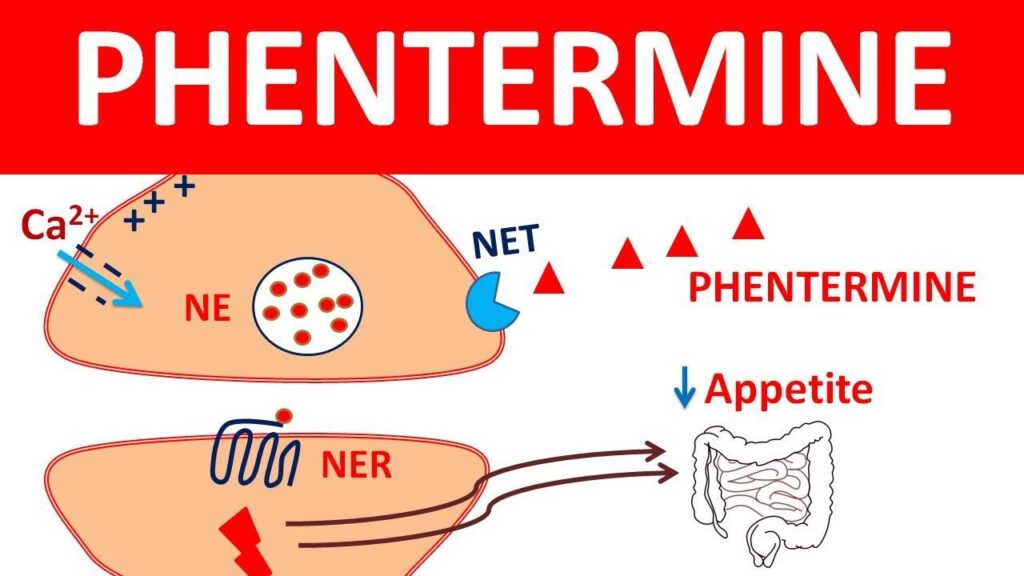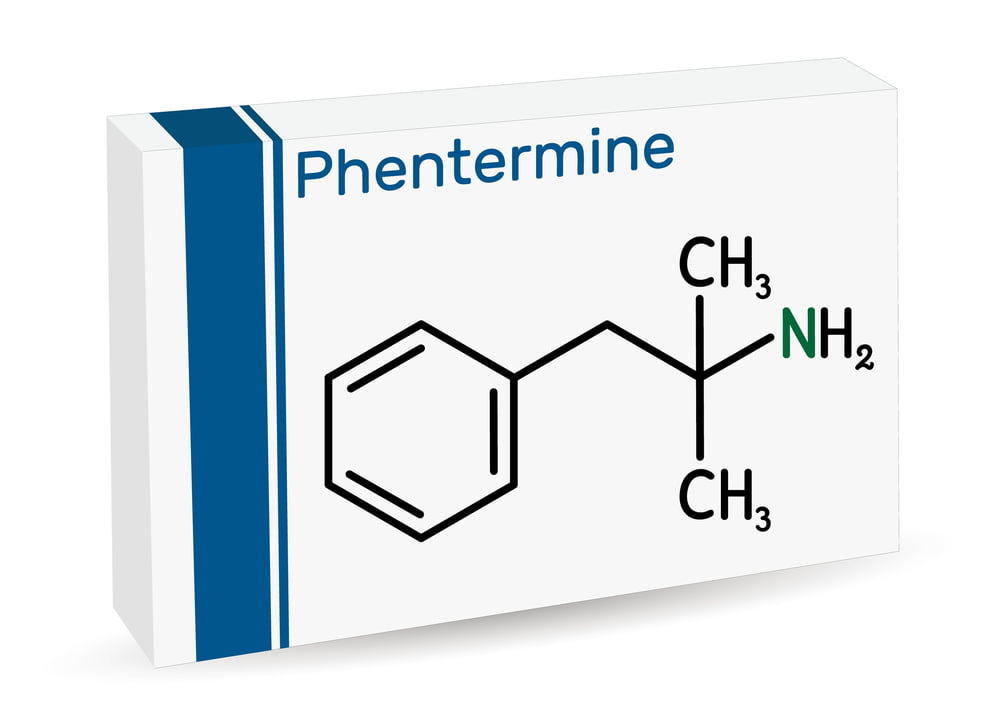If you have used Phentermine once, you will use it for the second time also. We are not saying that Phentermine is a yo-yo effect drug, but a lot of users withdraw it. Some of them say Phentermine have stopped working. Is that true? Disappointment is justified if your weight loss drug no longer works. Many other factors also affect the outcome and its activity. Our body learns, gets used to various natural and synthetic substances, and develops a special form of self-defense. Something similar happens with repeated use of Phentermine. Fortunately, there is something we can do about it. So, today we will discuss about “How To Make Phentermine Work Again?” However, first learn more about this medicine.
What Is Phentermine?
Phentermine is a popular weight loss drug. Its scientific name is “Phenyl-Tertiary-Butylamine”. As its name implies, it is totally based on a compound called “Phentermine”.
All weight loss pills are made for the same purpose – to help us in the weight loss process. However, different pills work in different ways.
Some of them reduce appetite; Others accelerate metabolism, the third group prevents carbohydrate or fat absorption. Many weight loss pills combine many of these effects at the same time.
The active ingredient of this medicine is phentermine hydrochloride, followed by the number of inactive components.
This drug comes in two forms:
- Capsule.
- Pills.
Both tablets & capsules have the same effects. The only difference is that the capsule swells with the release of active substances. Your doctor will decide what is the best option for you according to your health.
| Read Now: 16 Keto Diet Food For Rapid Weight Loss |
How Does Phentermine Work?
Now, we will be telling you about how to make phentermine work again. But before proceeding into details let’s know its basic principle. The basic principle of Phentermine is based on reducing hunger. It is known that your weight gain is due to a poor controlled appetite. Phentermine affects the hypothalamus and adrenal gland. This neurotransmitter stimulates the release of norepinephrine which controls many physical processes in our body and brain. That is, increases metabolism, glucose use, does high lipids, and uses fat as an energy source.
Above all, Phentermine reduces the feeling of hunger and creates a sense of satiety.
Physical Effects Of Phentermine.
This group of drugs mainly works on neurotransmitters of the central nervous system. Many neurotransmitters participate in food intake, a sense of satiety, fat binding for receptors, triggering processes that result in increased appetite and food consumption or reduced appetite and reduced food intake.
It may all seem a little confusing. Let’s explain in detail how it works.
Medicines for the treatment of obesity mimic or induce neurotransmitters that create a sense of satisfaction or prevent neurotransmitters that cause hunger. It binds receptors to noradrenergic drugs, serotonin drugs, and gamma-amino-lactic acid or cannabinoid receptors, and some peptides that reduce appetite or stimulate feelings of satisfaction.
Noradrenergic drugs stimulate the release of noradrenaline or block its restorage in neurons, affecting the natural process of food intake. Noradrenaline is free from storage in presynaptic cysts and being forced to beta-adrenergic receptors in peripheral hypothalamus reduces feed intake.
Phentermine and diethylpropion are sympathetic amines that resemble amphetamines. However, unlike amphetamine, they do not have the minimum effect on the release of dopamine in synapse.
One of the interesting features users noticed after several series of Phentermine taking is that it “stopped working”. Now that we have learnt more about the mechanism of phentermine drug and to make it work again, let’s see how to use phentermine correctly. We will help you to learn.

How To Use Phentermine Correctly?
So how should you really use Phentermine for long-lasting and sustained weight loss?
To discuss how this is done, you need to understand the importance of your metabolism (also called metabolic rate) on your weight.
The perhaps most important measure of whether or not you will maintain weight after you lose weight is how well your metabolism is working.(1)
Your metabolism is a term used to describe the number of calories that you burn while doing everyday activities such as breathing, sleeping, thinking, etc.
This amount of calories accounts for up to 90% of the total amount of calories you burn every day (depending on which study you look at).
But we have a big problem.
It is well known that calorie restriction causes a decrease in your metabolism and basal metabolic rate.
Let’s repeat that statement again to make sure:
If you consume fewer calories than the calories set on your metabolism, your body will adapt by reducing your metabolism to match your food intake.
This is known as metabolic damage and it happens with a calorie-restricted diet and there is a reason why up to 99% of diets fail (proven through studies).(2)
Maybe you’re seeing the problem here.
Phentermine causes a decrease in your appetite which will reduce the number of calories you consume.
This calorie restriction will eventually lead to a decrease in your metabolism and regaining weight after you stop taking the medication.
So how do you stop it from happening?
It turns out that you can circumvent this negative effect on metabolic function by changing the way you reduce your calories.
As far as your metabolism is concerned, there is a big difference between continuous calorie restriction and episodic calorie restriction.
Constant calorie restriction = 1,000 – 1,200 calorie diet x 30 days daily.
Episodic calorie restriction = 500-1,000 calories 1-3 days per week.
Constant calorie restriction is the “standard” advice that most weight loss experts give and the way most diets function.
You temporarily reduce the number of calories you consume for some time interval (usually 30-90 days).
You lose some weight during this period but you always get it back because you damage your metabolism in the process.
Episodic calorie restriction, on the other hand, does not harm your metabolism.(3)
Episodic calorie restriction has the advantage of the same amount of weight loss associated with sustained caloric restriction.
But where does Phentermine fit in?
Phentermine can be used to help increase the effectiveness of episodes of temporary calorie restriction by increasing your metabolism and reducing your appetite.
This combination makes the use of Phentermine more effective and more safe.
You end up using a smaller dose, taking advantage of the benefits of weight loss while using that dose less often.
Even this small change can have a huge impact on your total weight in terms of how well you tolerate the drug and much more.
The best way to use phentermine is to combine phentermine with intermittent or long-term fasting routines.
Phentermine use every 7 days no more than 3 days.
Using it for just 2 times every 7 days will cure many patients.
The days you use Phentermine are the days when you either fast for a long time or intermittently.
You can take Phentermine in the morning and empty stomach to help reduce your appetite for that day.
It’s a simple change, but it has a huge impact on your weight.
Bottom Line.
So, now you have came to know how to make phentermine work again and how to use it correctly to get the long lasting result.
Standard recommendations for using phentermine seem inadequate and can cause long-term metabolic damage.
Instead of using Phentermine as recommended, it will be better if consider using it in an episodic way.
This will allow for more sustained weight loss, less side effects while avoiding metabolic damage.
+3 Sources
Freaktofit has strict sourcing guidelines and relies on peer-reviewed studies, educational research institutes, and medical organizations. We avoid using tertiary references. You can learn more about how we ensure our content is accurate and up-to-date by reading our editorial policy.
- Mechanisms of Weight Regain following Weight Loss; https://www.ncbi.nlm.nih.gov/pmc/articles/PMC3901982/
- Obesity: ‘Slim chance’ of return to normal weight; https://www.bbc.com/news/health-33551498
- Dietary restriction with and without caloric restriction for healthy aging; https://www.ncbi.nlm.nih.gov/pmc/articles/PMC4755412/

 Workout
Workout
 Meditation
Meditation


 Stories
Stories


 Podcast
Podcast E-book
E-book















